What is Ketamine Assisted Psychotherapy (KAP)?
Ketamine Assisted Psychotherapy (KAP) is a novel, emerging therapy that prolongs the antidepressant effect of ketamine by discussing the ketamine psychedelic experience with a trained psychotherapist.
Recent studies have shown that KAP can be a powerful tool to help people with mood disorders like depression, anxiety, and PTSD, as well as chronic pain, dissociative disorders, and addiction. It has also shown effectiveness for people who have not seen results with other treatments.
At Reclaim Joy Medical KAP starts with an introduction session that is three hours long, done in the office with Dr. Suzanna Freerksen. Subsequent sessions are at-home journeys using lozenges, with integration therapy done in the following 2-3 days after taking a dose of ketamine.
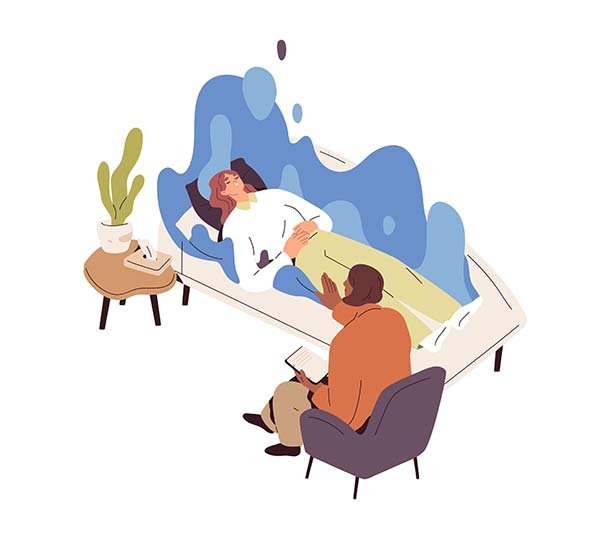
Both Counselor Ellen Smith and Dr. Suzanna Freerksen are trained in KAP integration psychotherapy.
If you are interested in starting ketamine assisted therapy, please call our office at 669-242-5151 for more information, or book an appointment with one of our providers to find out more.
What is ketamine?
Ketamine is classified as a dissociative anesthetic. It is one of the most widely used drugs in modern medicine, and is on the World Health Organization’s List of Essential Medicines. It was developed in 1963, FDA-approved in 1970, and used frequently by many hospitals and medical offices because of its rapid onset, proven safety, and short duration of action. It is used off-label to treat mood disorders in a way similar to psychedelic compounds. Unlike the psychedelic drugs psilocybin, MDMA, or ayahuasca, ketamine is legal for medical use in the United States with a doctor’s prescription. Ketamine can be administered several different ways, with the most common being sublingual, intramuscular, intravenous, and intranasal. At Reclaim Joy Medical, your first KAP session is in the office with sublingual ketamine, and subsequent ketamine journeys can be undertaken at home.
Is ketamine assisted psychotherapy safe?
Yes, ketamine assisted psychotherapy is generally considered a safe and effective treatment option for individuals with certain mental health issues, such as depression and anxiety. Ketamine is known for its low toxicity, minimal side effects, and short-term effects. During the first introduction ketamine session in the office with Dr. Freerksen, she she can help coach you through the possible obstacles, difficulties, and questions that arise.
What types of issues can be helped by using ketamine? Is it right for me?
At Reclaim Joy Medical, KAP is a powerful tool to help people with mood disorders like depression, anxiety, and PTSD as well as chronic pain, dissociative disorders, and addiction. KAP can be an effective and safe treatment option for people who have been struggling with these issues for a long time and have not seen results with other treatments. It is important to discuss the overall goals of treatment with a provider to make sure KAP is the best option for you.
How soon can I expect to see results?
The response to KAP can vary from person to person, but results can typically be seen within a few weeks. However, it is important to note that KAP is not a one-time treatment, and multiple sessions are recommended to achieve the desired outcomes. Though research has demonstrated an antidepressant response to low doses that are minimally psychoactive or sub- psychedelic, this effect tends to be cumulative, requiring repeated administrations over short periods of time. The present understanding of ketamine’s mode of action is as an NMDA receptor antagonist working through the glutamate neurotransmitter system. Glutamate is a neurotransmitter that is unique from most other psychiatric drugs such as SSRIs, SNRIs, mood stabilizers, antipsychotics, or benzodiazepines. As a result, ketamine has very few drug interactions with other medications.
How does Ketamine Assisted Psychotherapy (KAP) work?
KAP works by allowing people to experience a deeper level of understanding of their inner emotional and psychological landscape. This in turn allows a person to access insight, healing, and transformation. During the psychotherapy sessions patients are administered a low dose of ketamine, which allows them to reach a state of dissociation. This state can help create an emotional distance from difficult memories or trauma. The psychotherapist then provides emotional support and guidance as the patient navigates this inner terrain. Both Counselor Ellen Smith and Dr. Suzanna Freerksen have been trained to help you in this way.
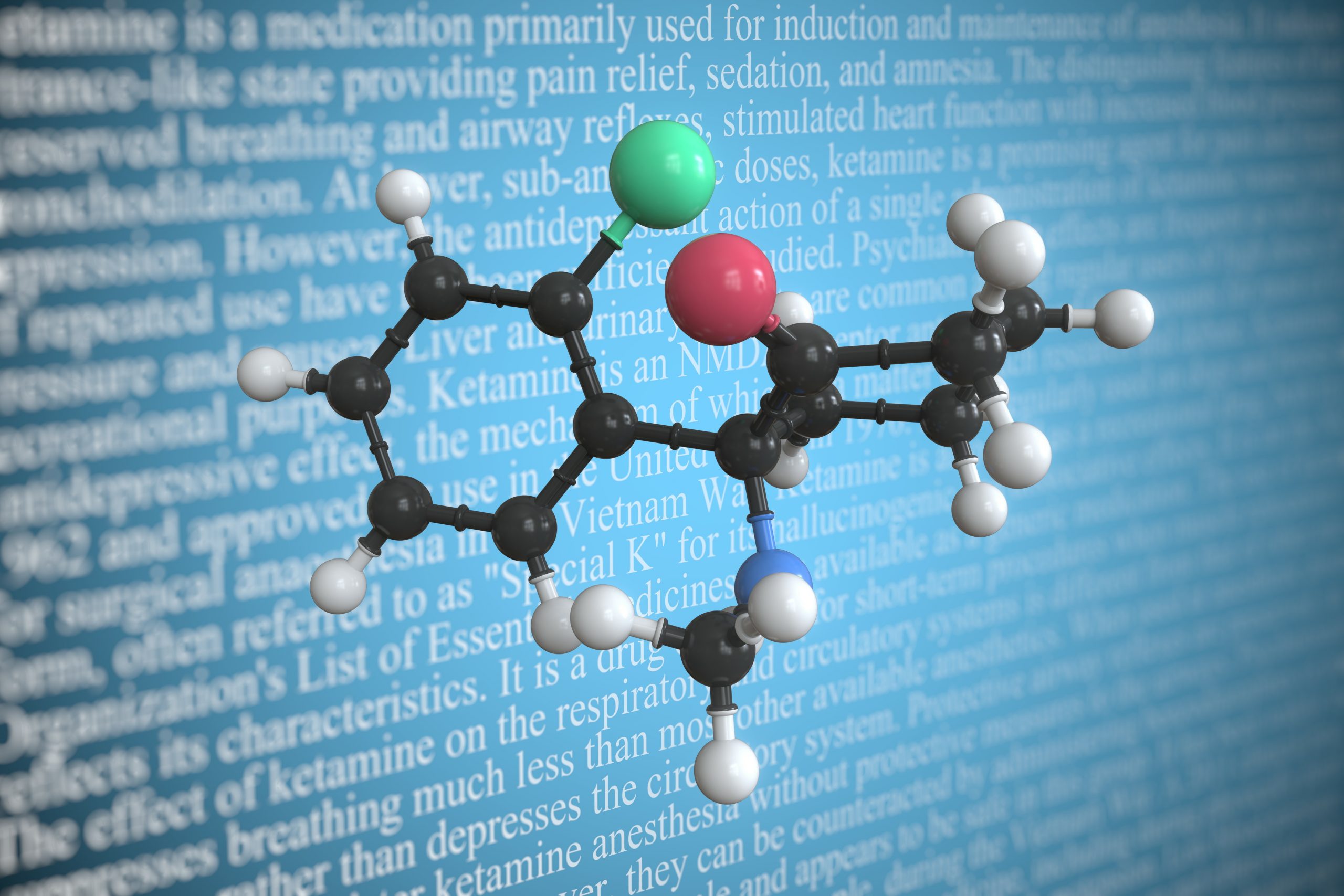
In depression, the long filamentous receptors on neurons that facilitate signal transmission may recede, and the mass of two parts of the brain that govern mood, the amygdala and hippocampus, may shrink. Animal research has shown that ketamine can stimulate neural growth within days (and sometimes hours) of administration of medication. It is believed that ketamine creates a similar neurogenesis in humans, which allows for neuron growth and brain plasticity. This can be helpful in breaking out of rigidity that keeps people stuck in negative patterns that can contribute to mental health conditions. People often Often, in the days after a ketamine journey (whether at home or in the office), people describe an increased mental flexibility and that changing problematic thoughts or behaviors might be less challenging than normal.
A ketamine journey is usually psychedelic in nature, where the routine patterns and rules do not apply. It is possible that this time on a ketamine journey affords a reprieve from negative habitual patterns of thought that are symptomatic of a mood disorder, creating an opportunity for learning new and healthier patterns of thought. Ketamine has also been found to reduce functioning in the Default Mode Network (DMN), which is an interconnected group of brain structures that tends to be most active during rumination, and is thought to be part of what keeps people in patterns that may or may not be healthy. With less time spent in the DMN, people can look at their situation from unique perspectives, and have a chance to develop new, healthier patterns more easily.
There is no current consensus on mode of action, and other mechanisms may be found central to ketamine’s effects. However, what we do see is that ketamine’s pharmacological antidepressant and anxiolytic effects combined with the altered state of consciousness can produce an optimal situation for productive thought and behavior change to take place, especially with a skilled psychotherapist guiding you through.
Types of ketamine therapy
Ketamine-Assisted Psychotherapy (KAP) is the most common form of ketamine therapy, and it involves a psychotherapist providing support and guidance as the patient navigates their inner emotional and psychological landscape. However, there are several other types of ketamine therapy available, such as Spravato – a nasal spray form of ketamine – and Ketamine-Assisted Psychedelic Therapy (KAPT). These therapies require the administration of higher doses of ketamine, making them more similar to traditional psychedelic therapy.
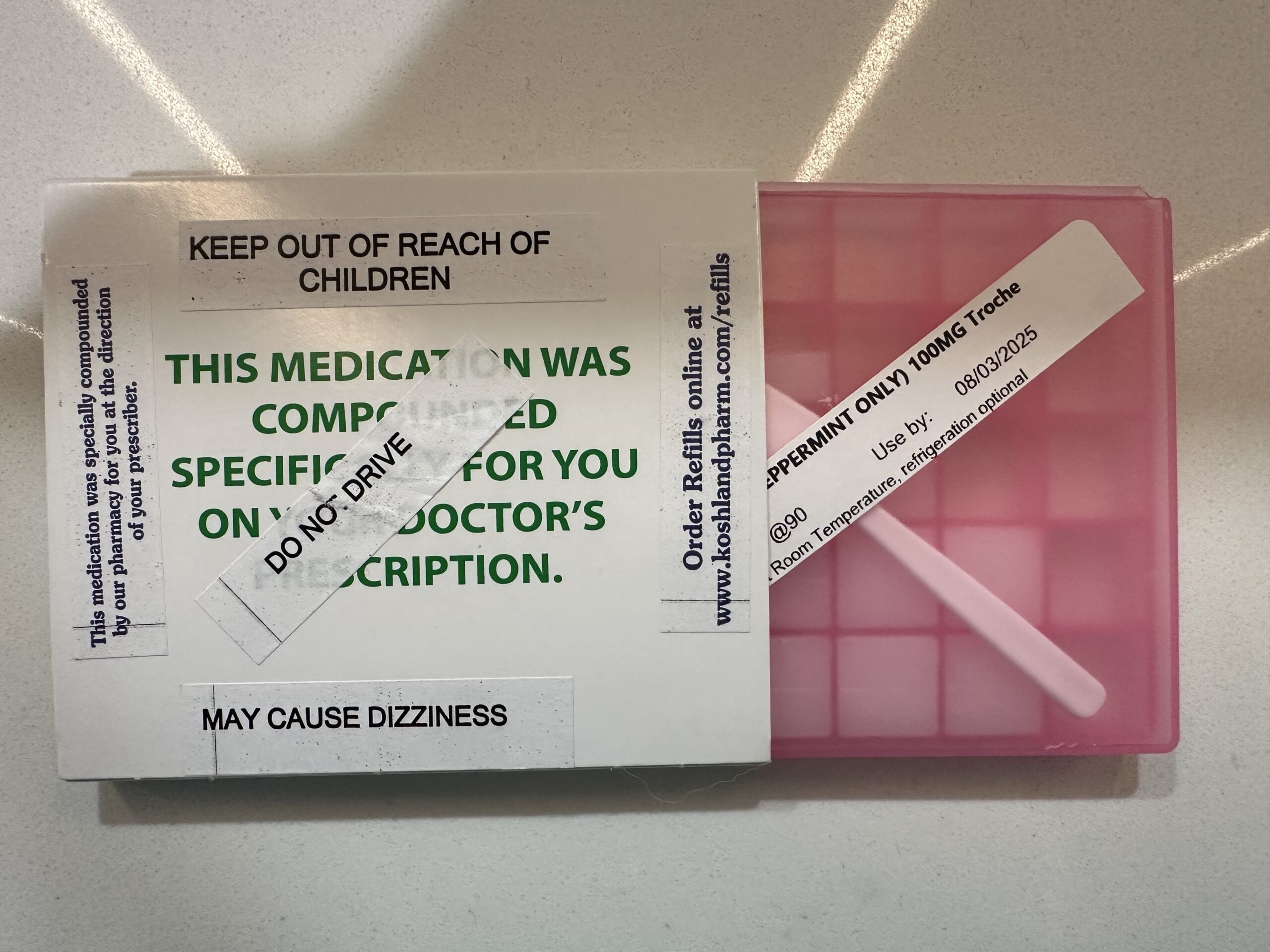
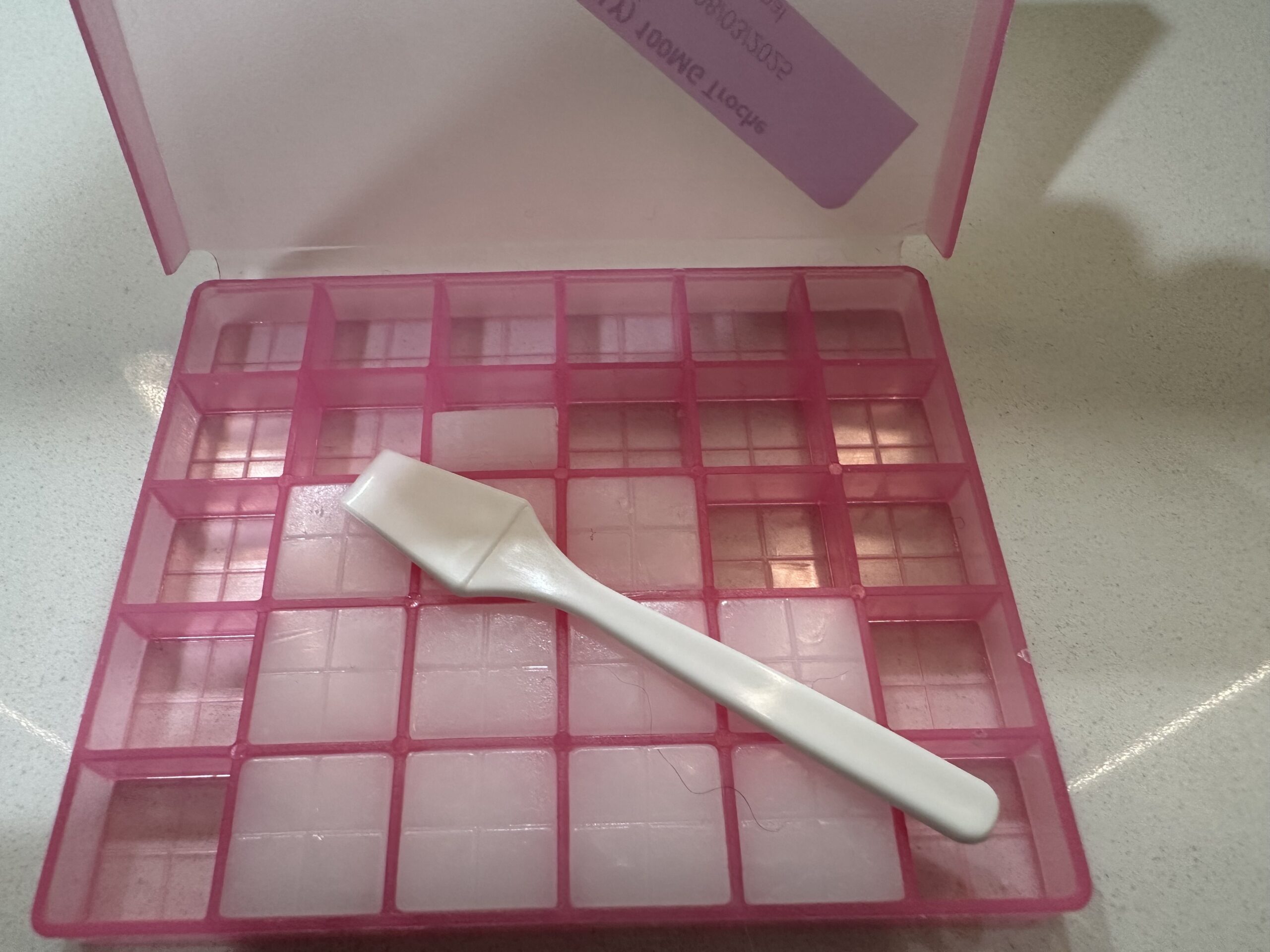
Compounded ketamine sublingual troches (container)
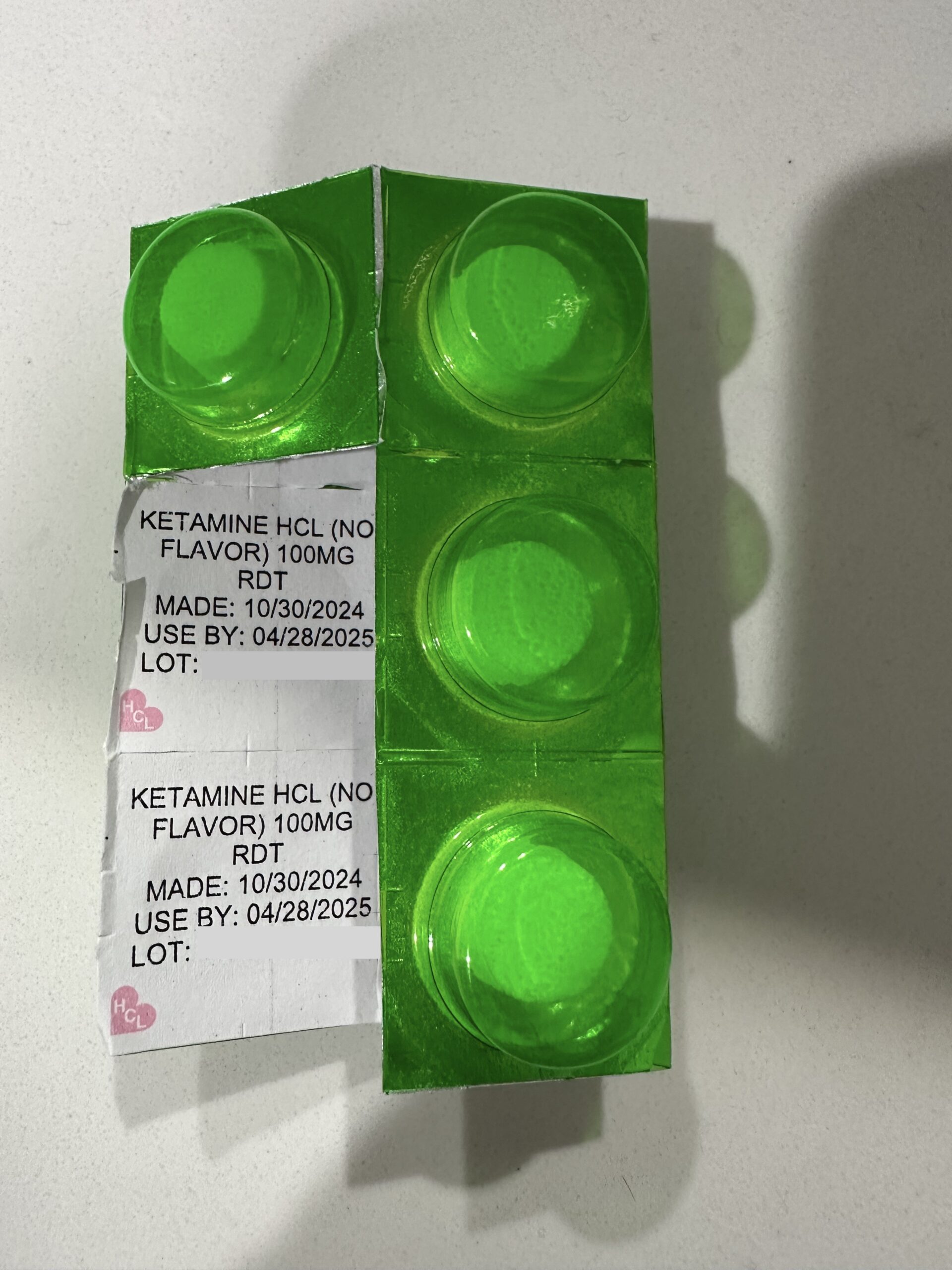
Compounded ketamine Rapidly Dissolving Tablets (RDTs) in blister packs
Sublingual ketamine lozenges
Sublingual ketamine lozenges are a type of ketamine therapy where a patient puts a lozenge in their mouth, allowing it to dissolve without swallowing the lozenge or the saliva that accumulates. The person holds the saliva and lozenge in their mouth for 15-30 minutes before either swallowing or spitting it out. This is the method preferred by Dr. Freerksen for her KAP sessions, because it allows for flexible dosing of ketamine in the office in order to accurately prescribe a ketamine dose for home ketamine journeys. Sublingual lozenges allow for easy administration of at-home ketamine journeys.
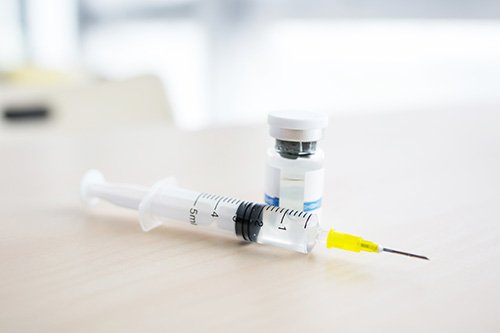
Intramuscular ketamine
Intramuscular ketamine is a type of ketamine therapy where a patient is administered a single dose of ketamine via an intramuscular injection. This method is usually used for patients who are already familiar with the effects of ketamine, and is usually done in a doctor’s office. This type of therapy has the benefits of rapid onset and more precise dosing than sublingual ketamine. Additionally, there is no flavor to an intramuscular injection and there are fewer gastrointestinal side effects with intramuscular versus sublingual administration.
How does Reclaim Joy Medical’s Ketamine Assisted Psychotherapy work?
Your first step towards KAP is booking an evaluation with Dr. Suzanna Freerksen. She will make sure Ketamine Assisted Psychotherapy is medically safe for you, and prepare you for your Ketamine Induction session. If you are medically cleared, she will write you a prescription for ketamine lozenges, to be mailed to your address by a compounding pharmacy such as Pharmaca Integrative Pharmacy, Koshland Pharmacy, or Lauden’s Integrative Pharmacy, usually between $75 and $115, including shipping. After receiving the medicine, you will bring the lozenges to your 3 Hour Ketamine Induction session. KAP Introduction sessions usually start in the late afternoon. You can drive yourself to this session, but need to have a rideshare or friend pick you up as it’s not recommended to drive a car the same day as a ketamine journey.
We recommend that you start your journey with an intention, like “Be kinder to myself” or “Allow myself to take more risks”. The first 15 minutes is spent talking about your intention, taking your blood pressure, and taking nausea medication and/or blood pressure medication if necessary. Dr. Freerksen will give you an eye mask (eyes do not focus well while under the influence of ketamine) and play music (to help create movement and motivation for the journey). You will let the ketamine lozenges dissolve under your tongue and absorb through your mouth tissue over 15-20 minutes. Dr. Freerksen will adjust the dose as necessary. Usually, one is quiet for about 45-60 minutes while experiencing the psychedelic effects of ketamine. Once you come back “into your body, into the room”, Dr. Freerksen will write down anything you care to share or you can record your spoken thoughts on your phone. Dr. Freerksen will help process and integrate your experience, and send you home with instructions regarding dosage and frequency and psychotherapy integration of ketamine home journeys.
Dr. Freerksen will see you monthly to follow your progress, and adjust or refill your ketamine prescription as needed. You can follow up with either Dr. Freerksen or Ellen Smith for post-dosage psychotherapy integration sessions. Psychotherapy integration is an important part of the KAP process, as it helps the antidepressant effects of ketamine last longer, and helps to cement new healthy behaviors into long-lasting healthy habits.
If you are interested in starting ketamine assisted therapy, please call our office at 669-242-5151 for more information, or book an appointment with one of our providers to find out more.
Thank you for choosing Reclaim Joy Medical!
